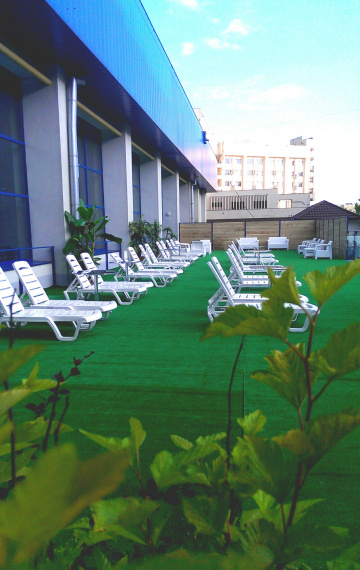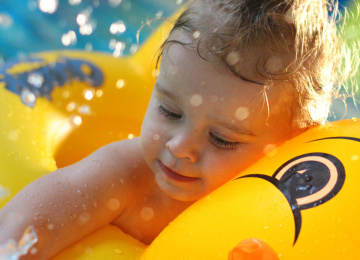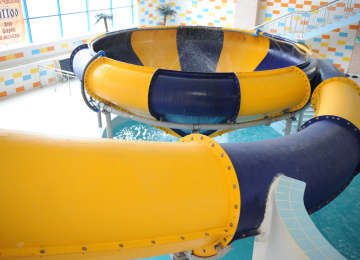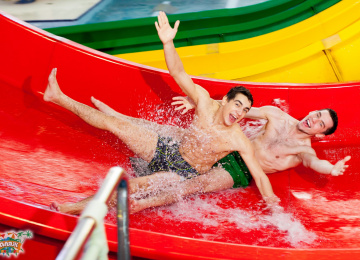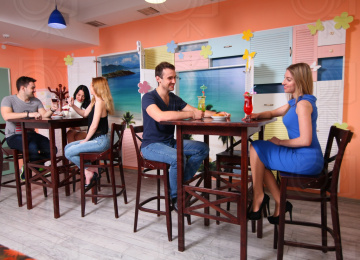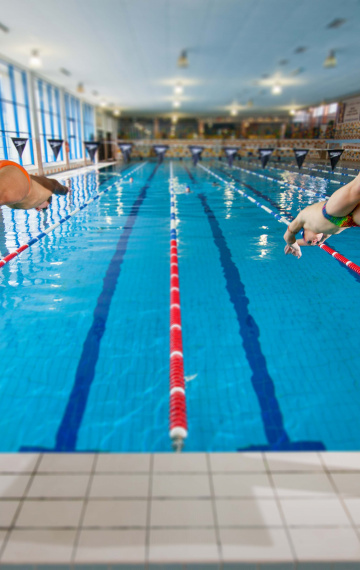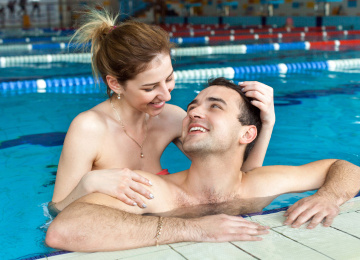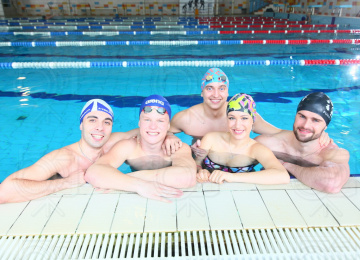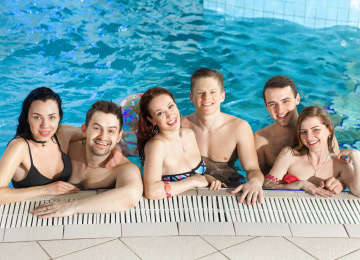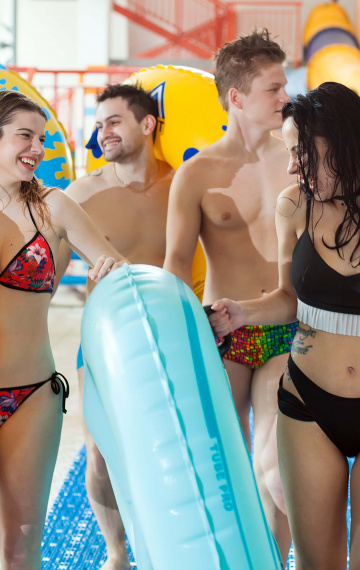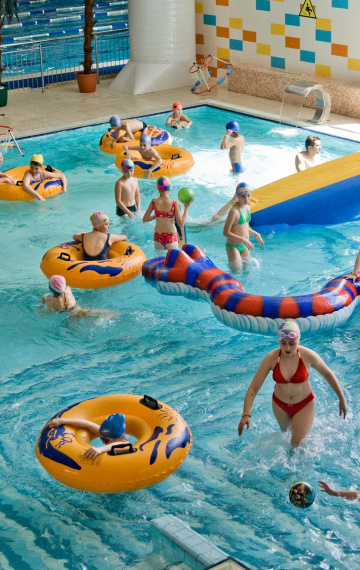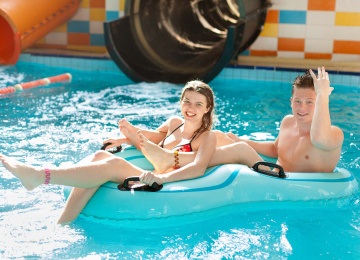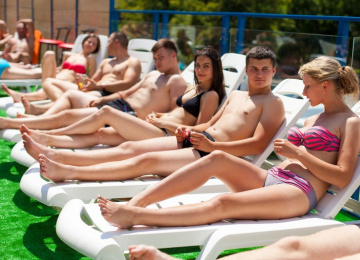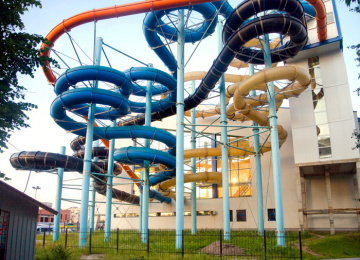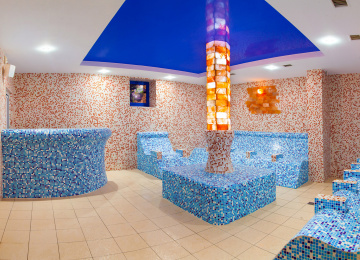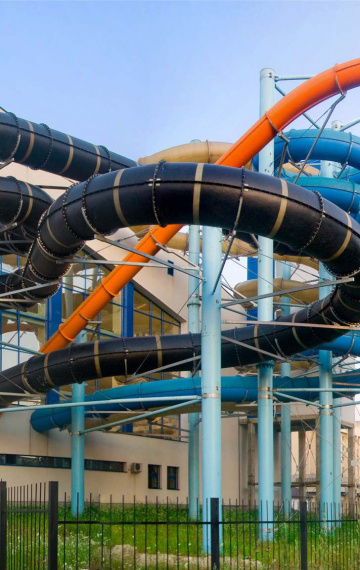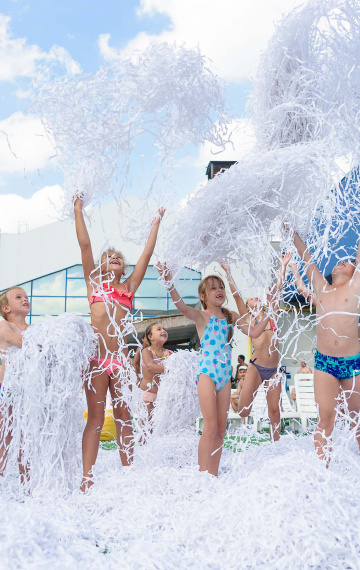
When a pandemic hits and your business is one of the key types forced into complete lockdown, how do you cope with the quarantine at your sports and aqua-entertainment complex? Do you lay off your employees? Do you look for other ways to cut costs drastically? That’s how some companies might respond. But not Lviv’s Pliazh Aquapark.
The 12-year old Pliazh Aquapark in Lviv is not only the biggest in Western Ukraine, but it was also the first Ukrainian aquapark to meet European standards and was a pioneer in this business. For years, it attracted residents of Lviv and visitors while providing a good model of know-how, experience and professionalism for aquaparks in other parts of the country.
In 2018, Pliazh changed its business model after its staff participated in a series of workshops organized by the EU’s EU4Buinsess initiative with funding from the EBRD.
And so Pliazh continued to show leadership in its business sector when its facilities faced a forced down time due to the COVID-19 quarantine. Pliazh has not seen any visitors since March 12, the day when the vast majority of Ukraine’s service businesses, including sports facilities, were restricted by government fiat. Yet, behind its walls, Pliazh continued to develop activities and made important changes, introducing an online program called “100 days to Summer” and launching a major overhaul.
Instead of leaving its facility dark and still, and its employees without work, Pliazh’s management decided to invest in across-the-board preventive maintenance of all critical systems, to renovate and replace outdated equipment, to clean up and sanitize its water distribution and ventilation systems, and to check its security system.
“Our entire complex is over 14,000 square meters,” says Olena Anatiychuk, marketing director at the Pliazh Aquapark. “To carry out our annual preventive maintenance, we have to close the facility for at least a week, which costs us significantly in lost income. And to undertake a full-fledged overhaul would cost even more. So, it’s may seem paradoxical, but in a sense we actually benefited from the forced lockdown.”
Meanwhile, Pliazh is keeping 12 coaches busy these days, running online workshops and offering consultations to those who want to participate in their “100 days to Summer” sports challenge. Pliazh organized this challenge in partnership with Radio Lux FM, a Lviv radio station, and the winner gets a 1-year membership with access to all Pliazh facilities.
From a derelict building to new rules on the market
The Pliazh Aquapark as it is today, emerged in the very early 2000’s from the almost completely derelict building where a water sports complex once operated. Anastasia Verlynska and Serhiy Dikhtyar bought the ruin and transformed the old soviet remains into a pioneer for the entire water entertainment industry in Ukraine. But first, it took 7 years to build the market.
Marketing Director Olena Anatiychuk joined Pliazh in 2008 as a PR manager. She grew up professionally with Pliazh and slowly switched to marketing as a professional focus. When she first became a part of the team, the market was not really ready for the new service and new rules. She recalls how the public was accustomed for decades to low quality but free services from state facilities.
“We had to educate the market to pay for the time they spent in the aquapark and respect our rules,” Anatiychuk notes. “People did not understand the business principles underlying our prices and time limitations.”
Gradually, Lviv’s business landscape and its entertainment image grew. Locals began to get used to the new reality—and to appreciate it—, and Pliazh became a popular place. Still, one major issue remained a problem: the aquapark was a one-trick pony for most of its clients. The return rate was flat and very much spread over time, with most people visiting just once or twice a year.
Rethinking business models after workshops at the BISC in Ivano-Frankivsk
Being no novice to service business marketing, Olena understood there was a growing problem with the entire business model focused only on entertainment. In 2018-2019, the team signed up for two programs, “Managing changes in business” and “Strategic marketing and business modeling,” at the Business Information Support Center in Ivano-Frankivsk, which is supported by the EBRD under the EU4Business Initiative of the EU.
The insights Olena discovered led to a change in Pliazh’s entire business model. The company now began to work a good deal on segmenting its customer base. They found out that the customers they attracted were families and active individuals who were interested in sports and wellness, but Pliazh was only offering entertainment. This was a clear sign to expand their business focus and open a sports complex along with the aquapark. The result was quite significant: they gained a 7% market share in the sports business during their first year.
The programmes of the Business Information Support Center held under the EBRD support and EU4Business funding helped the Pliazh team expand their knowledge and improve their understanding of the business.
“We found several new niches that we could move into,” says Olena. “We complemented entertainment with sports for children and adults, we equipped wellness zones, and we launched a stand-up paddle board or Supboard studio. We soon saw a 15% growth in customer flow and almost 40% repeat sales.”
Once the quarantine ends, Pliazh expects to see up to 80% of its clientele return, since they have spent years working to build a business that has become part of their clients’ lifestyle.

